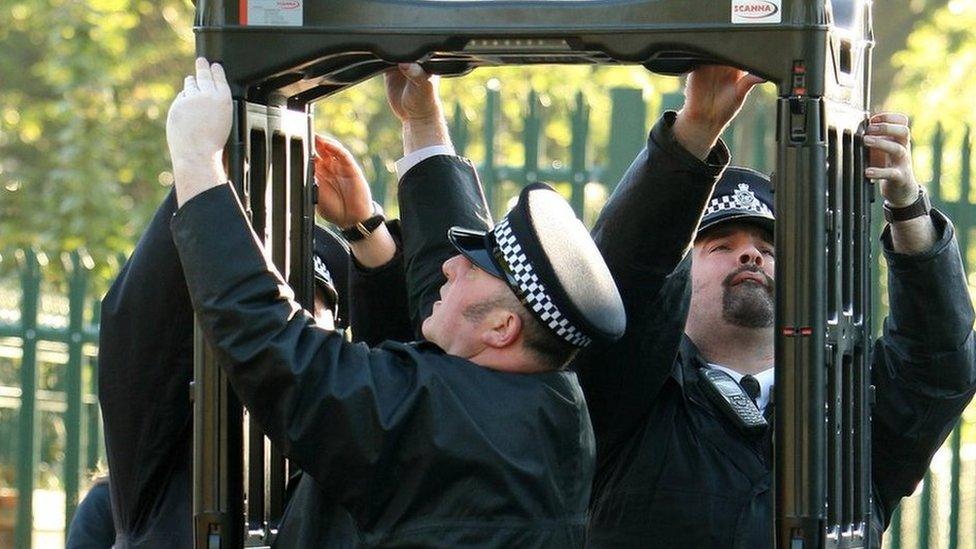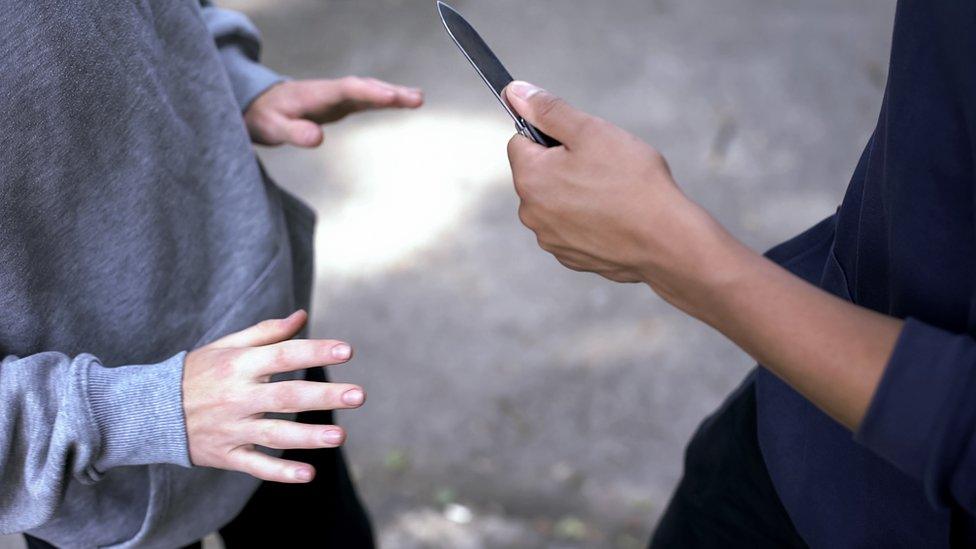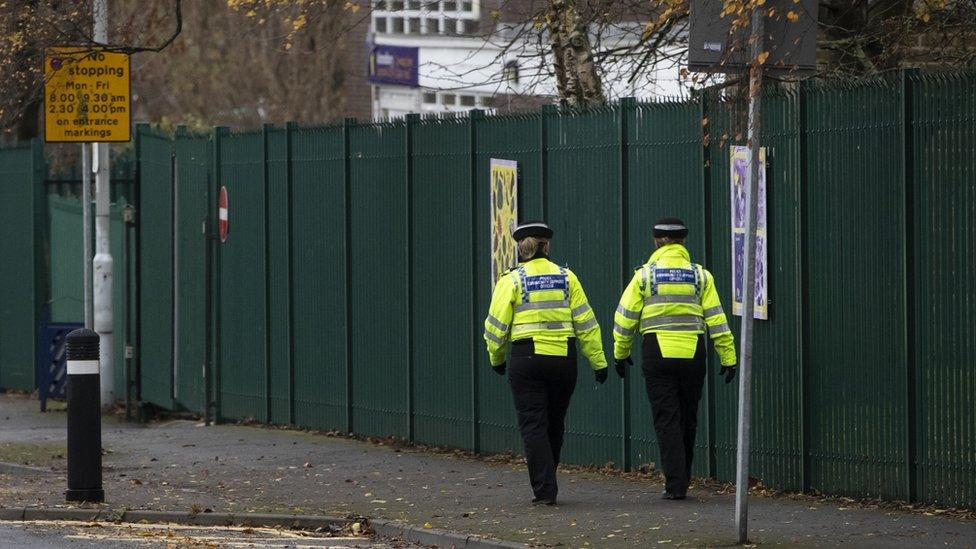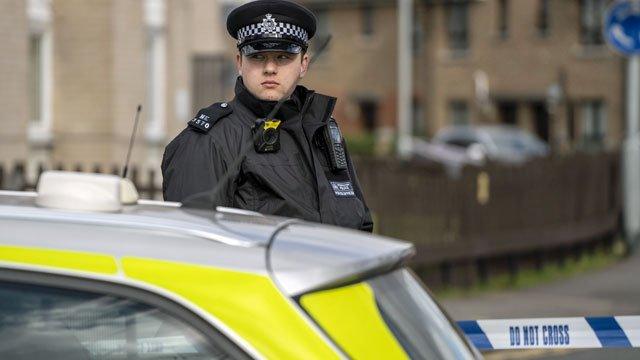We should be in every school in the UK, PC says
- Published

Metal detectors have been offered to some schools
MPs have called for dedicated police officers to be placed in all schools in areas with a higher risk of violence by April next year in a bid to tackle youth crime.
While the scheme is already happening in some areas, 10 out of 33 police forces in England told the Home Affairs Committee they had no safer schools officers.
But what do these officers do and how do they keep children and staff safe?
'Students relate to personal experience'
PC Nick Stenner is the dedicated police officer for six secondary schools, two colleges and two special educational needs schools in the district of Newark and Sherwood, in Nottinghamshire.
A police officer for 10 years, he began working in schools last September.
As a safer schools officer, PC Stenner teaches students about a range of issues that might affect them, including online and social media safety.
But it is the issue of knife crime and its far-reaching effects that often particularly resonates with students.
"We go through the legal consequences, the practical things that can go wrong, even if they don't intend to use the weapon, and the serious injuries that have been caused," PC Stenner says.
"In Nottinghamshire, we have parents of children who have been victims of knife crime - whether they have died or been badly injured - and they will come in and talk to them about it.
"What the students relate to more than anything is the personal experience.
"When they start asking you questions about the cases you've been involved in, the knife offences, the stabbings, the murders that you may have turned up to, it kind of hits home with them."
PC Stenner says he works hard to build relationships with students, making them more likely to talk to him about things they are worried about.
"The children come to me with information, usually after I give a talk or after school.
"It could be they were down the park and saw someone with a knife, or someone is threatening them, or it could be that their sister is talking to someone older online and their parents don't know about it."

PC Stenner - who is one of about 12 safer schools officers in Nottinghamshire - says the main issues he deals with relate to cyber-safety, including youngsters being asked to send inappropriate images of themselves to strangers via social media.
Some students have also been involved in cyber hacking.
A youngster at one of his schools managed to shut down its entire IT network for four months.
In this instance, the pupil did not get a criminal record and was put onto an intensive cyber-awareness course to teach them about using their abilities in a lawful way.
It is part of an approach aimed at keeping young people out of the criminal justice system - where possible - and educating them about the consequences of repeat offending.
For children at risk of anti-social behaviour or county lines drug dealing, they are offered the chance to go on summer boot camps with PC Stenner and the fire brigade, and can learn about their work through physical challenges.
'Tomorrow's victims'
PC Stenner believes that every school in the UK should have a dedicated police officer to look out for the "victims, witnesses and offenders" of the future.
"A dedicated school police officer acts as a buffer and takes the demand off the frontline police, which has been really effective.
"Having a police presence in every school at every age is so important because they are potentially tomorrow's victims, witnesses - and they might be tomorrow's criminals - but if they are the latter, we know a lot more about them before they get there.
"One thing we do hope that these children never become victims, witnesses or offenders, but some of them will do, and it's about them knowing about the risks if that does happen to them."
- Published31 July 2019

- Published18 July 2019
- Published27 March 2019
